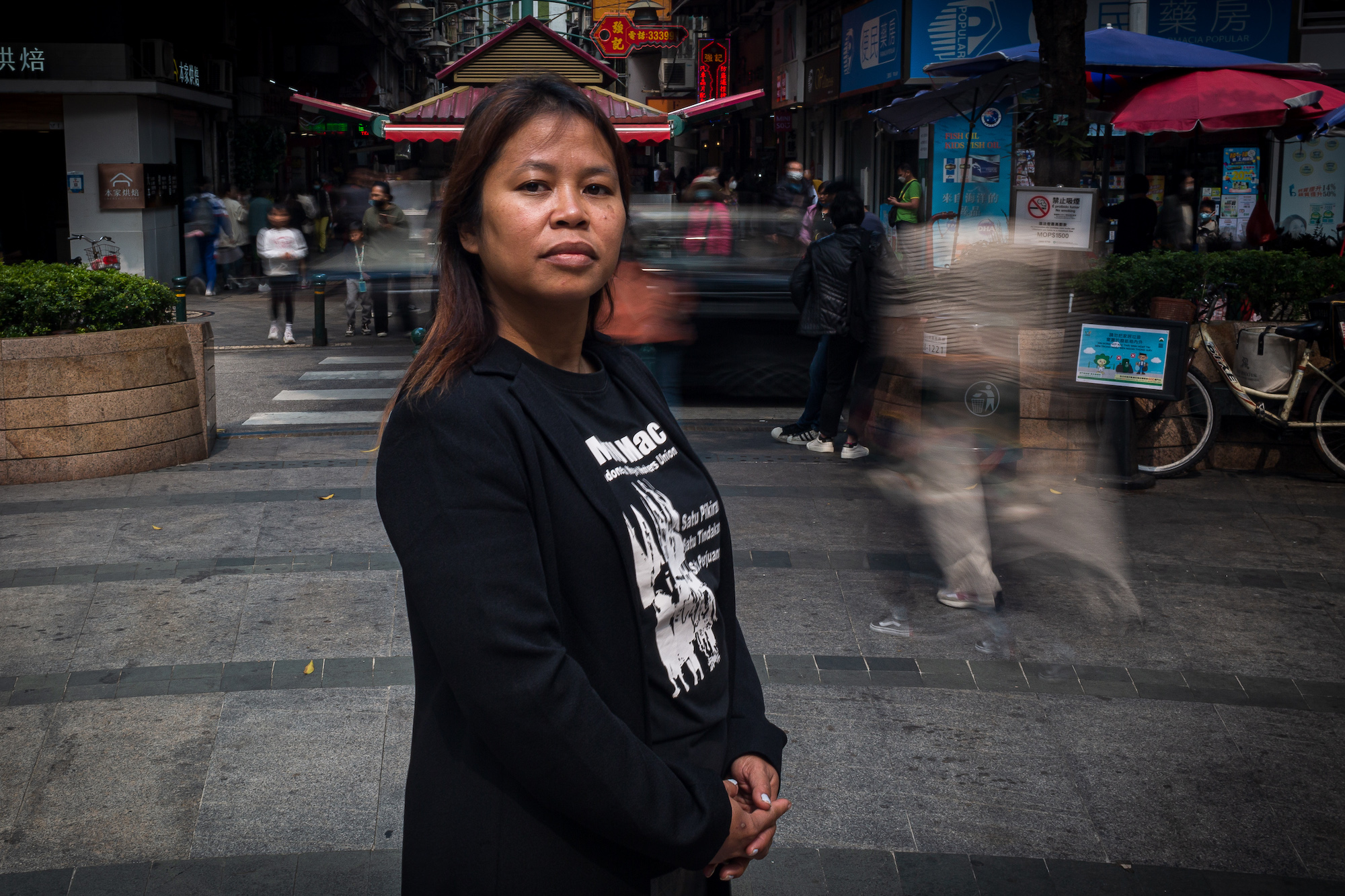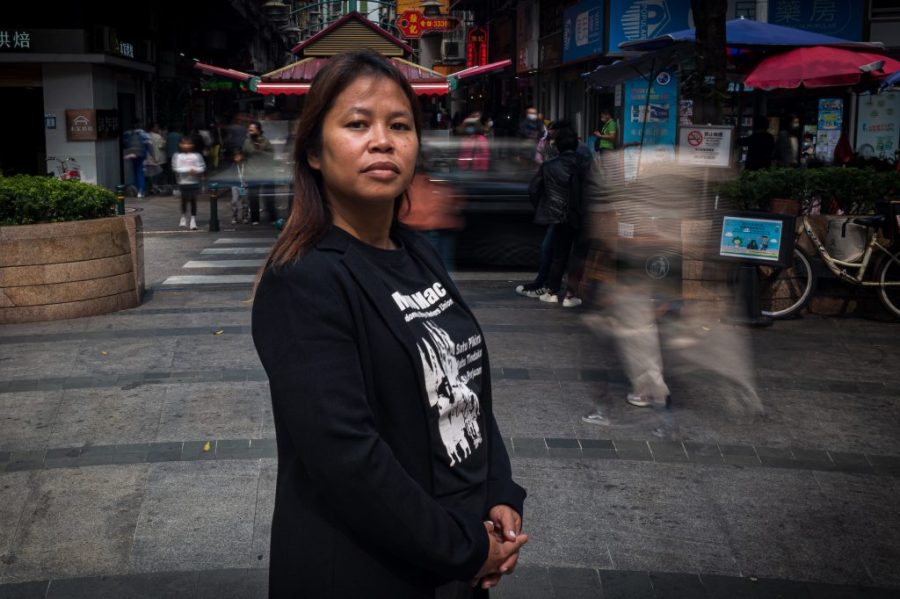When Indonesian single mother Yosa Wariyanti worked as a domestic helper in Hong Kong, she says she “had an employer who cut my salary every time I made a mistake”.
Smarting from the unfair treatment, she sought help from a migrant workers’ group.
The experience, she tells Macao News, “made me realise that I need to help other migrant workers too. This has become my drive, to help others who are in the same situation”.
Wariyanti now works in Macao for an employer who treats her well, but, like their Hong Kong counterparts, foreign domestic helpers on this side of the estuary also face challenges. Far from home, operating in unfamiliar languages, and uncertain of their rights, members of the community are vulnerable to exploitation.
Most egregiously, they have been excluded from Macao’s minimum wage law, with the government arguing, unconvincingly, that the “special” nature of domestic work disqualifies helpers from such protection. The exemption was noted last year as an item of concern by the UN Human Rights Committee, alongside the “excessive fees” levied on helpers by unscrupulous recruitment agencies, which can charge as much as two months’ salary.
The committee asked local authorities to “take action to enhance the protection of migrant workers, especially migrant domestic workers”. But as Macao marks International Women’s Day on 8 March, it is unclear what steps have been taken to alleviate the burdens borne by the territory’s domestic helpers, who are almost all female.
That’s why 43-year-old Wariyanti, who now heads the Macao chapter of the Indonesian Migrant Workers Union (IMWU) will continue advocating for her community. Her organisation runs a shelter near the Three Lamps District.
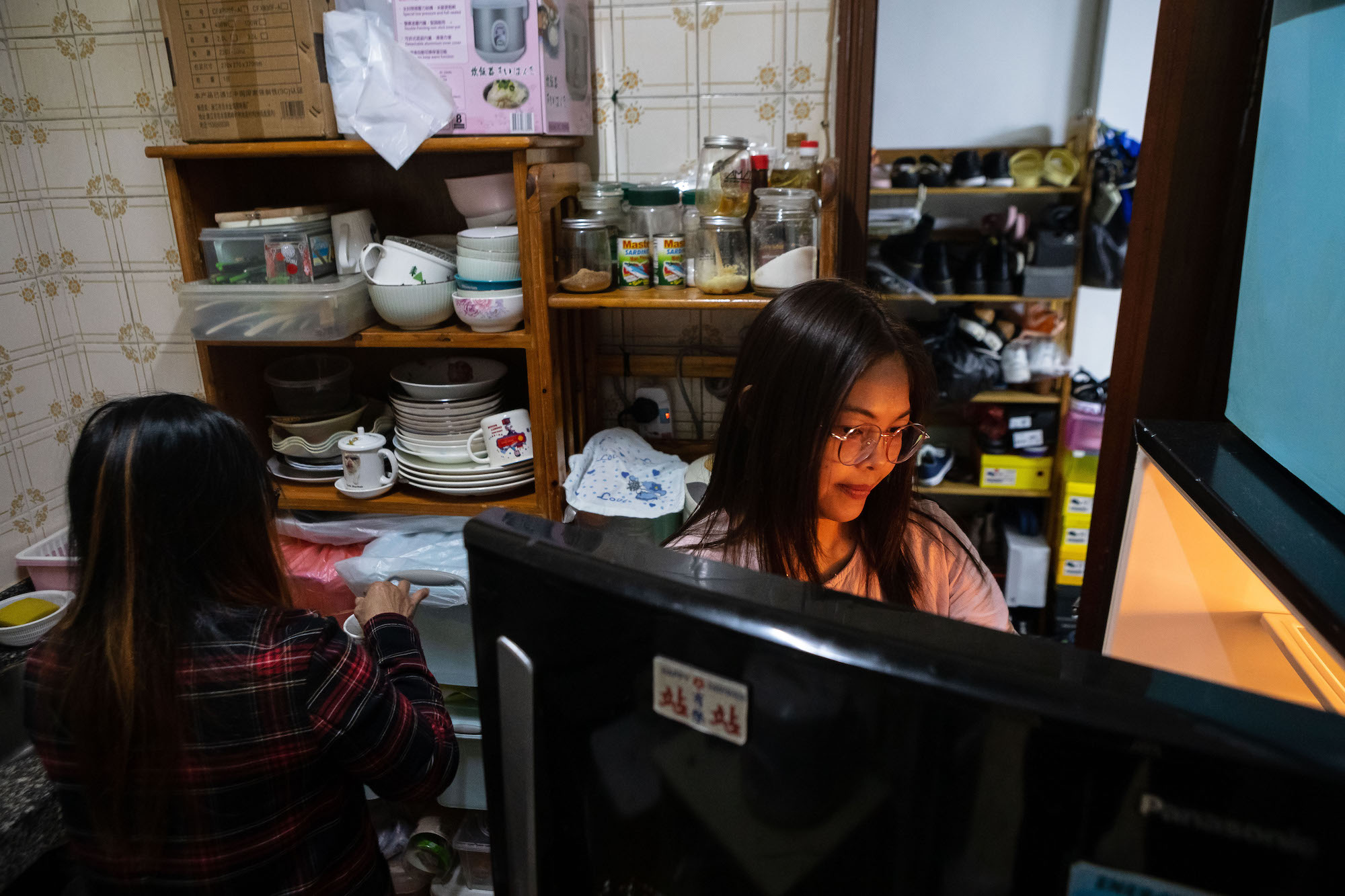
“We cook and eat together in our shelter; we hold English, Cantonese and Mandarin language courses for our members as well as other migrant workers who are interested to join; we sometimes hold workshops or seminars about health, drugs and various other topics,” she says.
“Care is what migrant workers really need in Macao”.
The struggles of Macao’s female domestic helpers
According to data from the city’s Labour Affairs Bureau (DSAL), at the end of January 2023, there were nearly 152,000 non-resident migrant workers in Macao, with more than 105,000 of them from mainland China. The remainder come mostly from the Philippines (24,259), but there are significant populations from Vietnam (7,437) and Indonesia (4,517). In all three of those communities, female domestic helpers predominate, making up more than half of all Philippine and Vietnamese migrant workers and nearly three-quarters of all Indonesians.
Their contribution to the local economy is significant. By taking care of child-minding, cooking, and cleaning – many doing so for far less than a minimum wage – foreign domestic helpers enable the women of Macao to go out to work, pay taxes and lead productive lives.
At the end of 2022, more than 145,000 female Macao residents were employed in the city, according to the Statistics and Census Service. The figure accounts for around 60 percent of Macao’s female population. By contrast, the labour force participation rate for women in the US is 56.8 percent, while in Australia less than 26 percent of women work full time.
In places where domestic help is prohibitively expensive, it mostly falls to women to stay at home and shoulder domestic responsibilities. For example, research quoted by Sky News on Monday estimates that, in the UK, lost economic contributions by women who want to work extra hours but cannot, because of childcare, amount to 38 billion pounds annually, or one percent of GDP.
[See more: Has Covid-19 set gender equality back in Macao?]
Despite playing a pivotal role locally, many domestic workers in Macao report feelings of isolation and financial stress.
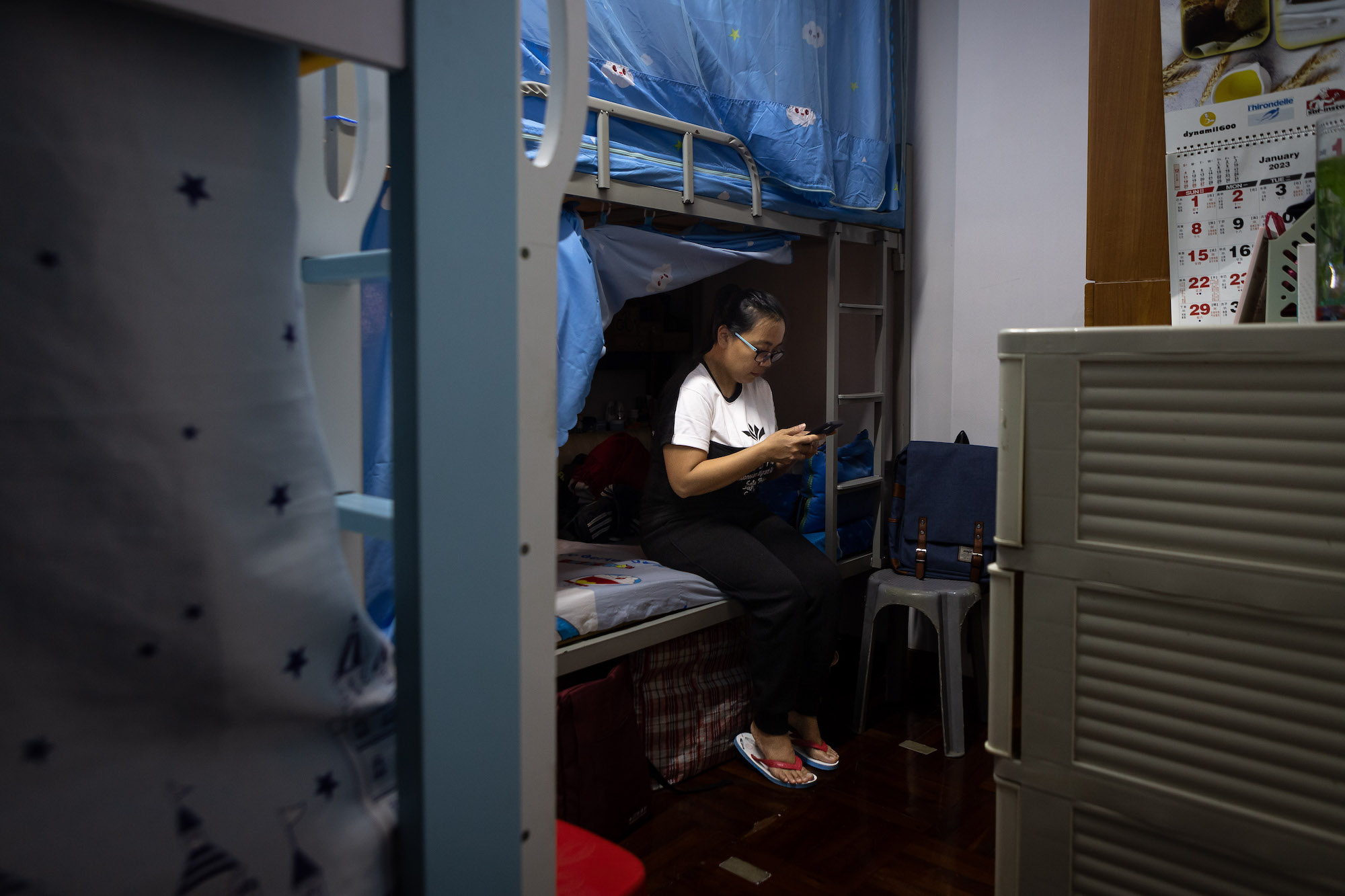
“Not all employers are good to their helpers”, Lenie Lenada tells Macao News.
The 57-year-old Filipina has been working as a domestic helper in Macao since 2012 and says that without minimum wage protection – which guarantees other workers in Macao at least 6,656 patacas a month – many of her peers are scraping by on monthly earnings as low as 3,000 or 3,500 patacas.
“If it’s very little, we cannot survive”, she says. “We need to send money back home”, pay for boarding house accommodation and cover “bills and food during our stay in Macao”.
Lenada is the deputy secretary of the Macau chapter of Migrante International, an alliance of Philippine migrant organisations that covers 24 countries and regions. It has operated in Macao since 2004.
The group advises its members on issues like salary and changes in employment or visa policies. “Some of them need [legal] help so we accompany them to the Labour Affairs Bureau so they can get the right information from the government,” Lenada explains. She says many “do not know the places where they can get help from.”
Their vulnerability is what drives Lenada to do what she can. “There has to be some people who help them”, she says “and I decided I can do something about it and be one of those people”.
Lorna Apostoles Licos is similarly driven. The 45-year-old domestic worker, who has lived in Macao since 2017, volunteers for the nonprofit WelAnser Centre, a facility offering support services to foreign workers in Macao, run by the Catholic charity Caritas.
“I want my life to have a purpose”, she tells Macao News. “That’s why I spend my time volunteering, rather than resting in my bed the whole day on my day off”.
[See More: Four international women find success, community and diversity in Macao]
But while women like Wariyanti, Lenada, and Licos continue to devote energy and resources to grassroots advocacy, there appears to be no timeline for extending to foreign domestic workers the legal benefit that would make the most financial difference to them.
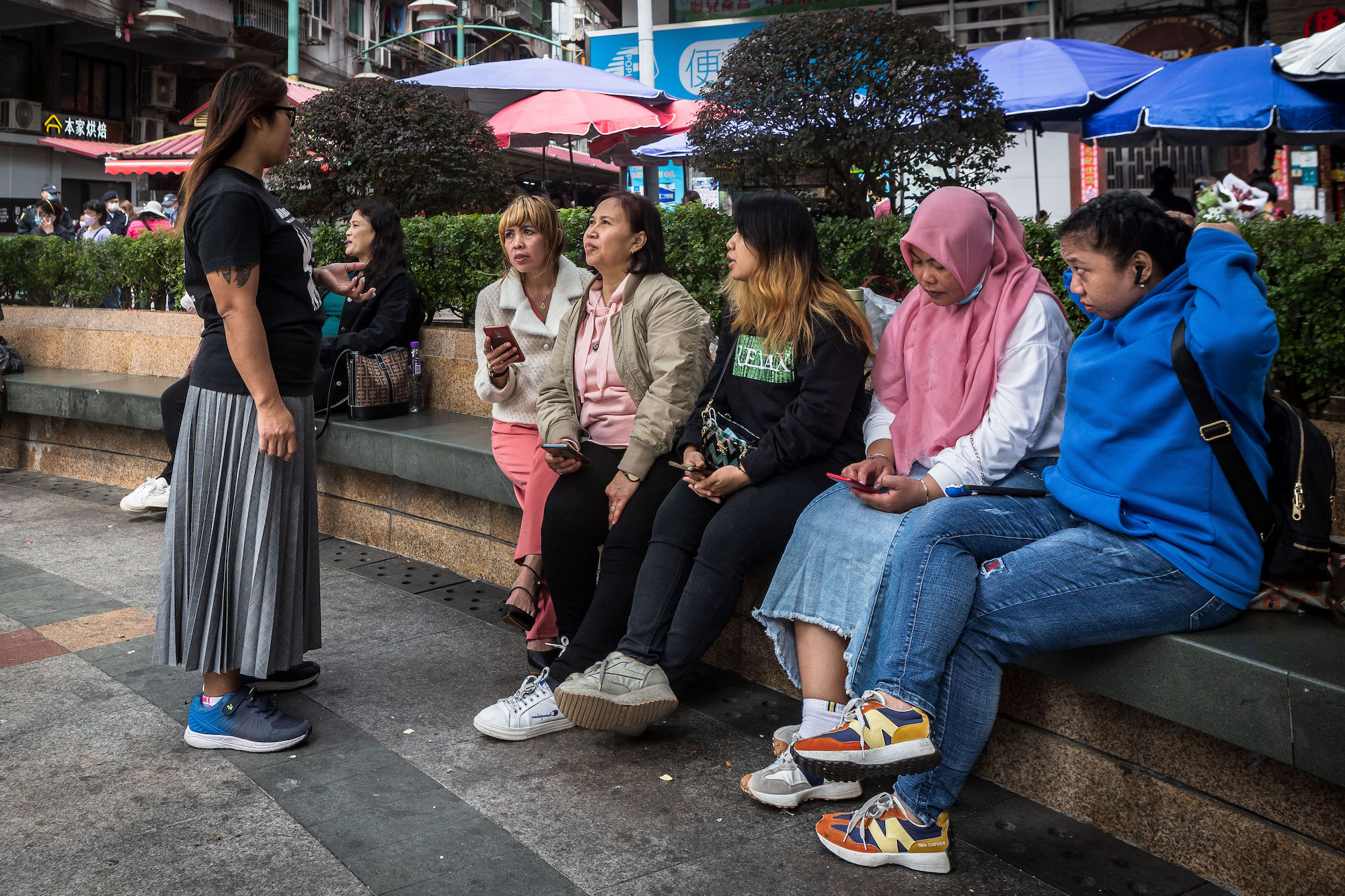
One local employment law expert, who spoke to Macao News on condition of anonymity, speculated that authorities were keen for full-time domestic help to remain affordable to seniors of modest means, given the territory’s ageing population.
Some elderly, he said, “only rely on the money from the government and it’s probably just about 7,000 patacas per month. If the minimum wage keeps on increasing, how can they afford to have a domestic helper? We all know they really need help to do the housework or even to go out, especially those whose children do not have time for them.”
That means Macao’s domestic helpers may have to rely on each other for some time to come. Luckily, women like Licos are up to the challenge.
“When you help your fellow migrant workers, it gives you joy”, she tells Macao News. “Even if no one cares about them, at least they know they can rely on me”.
